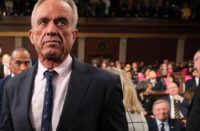The efforts of President-elect Donald Trump to have his criminal conviction in a state court overturned were denied by a New York judge on Monday. Trump had sought to have his case dismissed based on a significant ruling by the Supreme Court.
Judge Juan Merchan established that the July ruling by the Supreme Court, which gave Trump immunity from prosecution for official acts during his presidency, did not prevent a jury from convicting him in a criminal trial held earlier this year.
Judge Merchan noted that the evidence presented at the trial was solely related to Trump’s unofficial conduct, falling outside the Supreme Court’s ruling. He emphasized that even if there were any errors in introducing the contested evidence, they were negligible given the overwhelming proof of guilt.
Judge Merchan was scheduled to deliver his ruling on November 12 regarding whether presidential immunity should have barred jurors from viewing certain evidence at Trump’s trial. However, he deferred his decision, stating he needed to hear from the prosecution on how to proceed given the unprecedented circumstances following Trump’s re-election.
Trump, in the meantime, sought another dismissal of the case, claiming his imminent return to the presidency necessitated it. However, prosecutors representing Manhattan District Attorney Alvin Bragg countered this, stating there’s no law mandating the dismissal of a state case after conviction just because the defendant was elected president.
Trump made history as the first individual to win the presidency following a criminal conviction. He was also the first ex-president to be tried for crimes. A unanimous jury found him guilty of multiple felonies in May, and a few weeks later, the Supreme Court ruled that former presidents are immune from prosecution for official acts.
Trump’s defense contended that the Supreme Court’s decision implied that his conviction should be annulled and the charges dropped. They argued that the trial included testimony from past White House staff that should have been excluded. However, Bragg’s office refuted this, affirming that the disputed testimony was minor compared to the substantial evidence against Trump.
The jury found Trump guilty of committing 34 felonies by authorizing a scheme to hide payments to Michael Cohen, his former attorney. Cohen had paid $130,000 to adult film actress Stormy Daniels, just days before the 2016 presidential election, in return for her silence about an alleged sexual encounter with Trump.
Judge Merchan asked whether a President’s conduct in office to hide payments to an adult film actress for an encounter that occurred before his presidency could be considered official or unofficial. He concluded they were unofficial acts and added that even if they weren’t, these acts did not pose any threat to the presidency.
Despite pleading not guilty and strongly denying Daniels’ allegations, Trump has indicated that he will appeal the conviction. He also has the option to appeal Judge Merchan’s ruling on presidential immunity.





